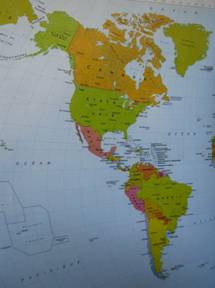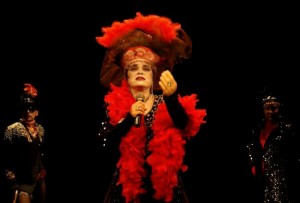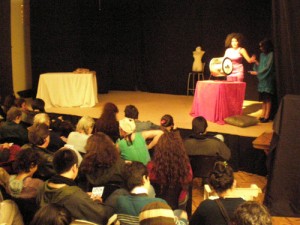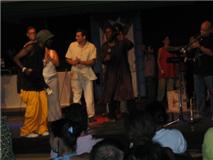 Intro
Intro
Many years ago – I’m talking about the ’70s – I worked for the MININT (Ministry of the Interior), but my military unit’s official cover was MINFAR (Ministry of the Revolutionary Armed Forces), and therefore to all outward appearances I worked in the military. A minibus would pick me up in the morning and drop me off in the afternoon in Playa de Marianao, and next to the Mare Aperto pizzeria I’d get in line for the 79 and the 179 to return home. Since, for as long as I could remember, public transportation had been in a critical state, I’d steel myself with patience and a book for waiting. One afternoon while waiting in that line I was reading a biography of Trotsky, and I was approached by an officer (they hadn’t yet changed the ranks to the equivalents of those of our late sister [the USSR], so I’m talking about what was then a captain), and in a tone between authoritarian and condescending, he asked me how I could be reading that book. I had heard in my study-circles about this revisionist traitor and I wanted to know more. That’s the reason I gave the captain, who waited for my response with a penetrating stare. Through him I learned that Trotsky was forbidden reading for members of the Armed Forces; as far as I knew, this measure was not applied at the MININT. Some time later I got seriously scared while reading “China, The Other Communism”, when another officer (or maybe the same one, I don’t know) asked me the number of my military unit, concerned, no doubt, about the ideological purity of soldiers, there, where subordinates were so ill-informed of the Index. After that second incident I started making my own book covers.
There’s more. Around that time and up until 1979, the buses passed 5th Avenue, and many times, from on board the bus, I’d become ecstatic on seeing the royal bearing of those Russian greyhounds being walked along the segment between 42nd and 70th Streets, along 5th Avenue’s wide central promenade, sometimes by a woman who undoubtedly walked the dogs as an obligation; sometimes by a tall man who could have walked right passed me unnoticed if it hadn’t been for the hounds. It wasn’t until recently that I came to know that those dogs were Ix and Dax, the same ones in my novel, of the novel that Leonardo Padura wrote for me.
Love of Dogs
The Man Who Loved Dogs, like his earlier The Novel of My Life, is narrated in different time periods and with different characters that the narrator conjures with one common denominator: the love of dogs. The choice of historical figures couldn’t have been stronger: Trotsky, — a name spoken in whispers when talking about his writing and out loud when slandering him — seen in the novel as a man beaten but not defeated, who somewhat reminded me of Hemingway’s Santiago, the fisherman.
Mercader, the assassin, a man given unconditionally to the service of a cause, the plaything of an incomprehensible force, but one to which he submits, postponing (or nullifying) all doubts. An awkward creature who must have left behind unfinished secret inspections, not as a super agent, but rather as a working goal for those who came after. Moscow trusts, but verifies… However, I ended up feeling sympathy for that solitary and undesirable man, quite a potent character; and even more potent, and for sale, his mother. The mother, from a certain species that, since I don’t understand, I fear: those mothers who, far from protecting their children, expose them, with a peculiar sense of duty. I’m thankful to the hand that wrote these splendid portraits for me.
The lives of these two men remind me, as only art can, how from such a premature date the Russian Revolution and the communist movement in general became contaminated by human miseries, and the revolutionary concept extends right up to us, falsified and degraded, shackled by immobility, complacency and the cult of personality. We already know what the disillusion of reason can give rise to.
As if my unease wasn’t enough, light gets shed upon a chapter hitherto unknown to me about the relationship between the secret services of the Soviet Union and the Spanish Republic, one more infamous page which Cuba prefers to keep silent about, under the comfortable philosophy of avoiding the destruction of history.
The third character is Ivan: ahistorical, anti-hero, fearful, fainthearted. Maybe it’s too many setbacks for just one man, but Ivan is an era, a generation, a country. His personal story is the history of a collective failure. He may seem excessive in his disgrace, but so real! With an economy of characters, the necessary brushstrokes are there for an unsuspecting reader, or a prospective reader, to glimpse the shadows of the Cuban Revolution. Ivan started becoming intimate, familiar, until he became one with me. I carry Ivan in my DNA. In an intense symbiosis, Padura put into words all of my disenchantment, the feeling of having been swindled, the sensation of the loss of purity, that emptiness left by the confirmation that there is no Santa Claus.
The plot reaches a crescendo in the style of tragedies, the characters’ fates sealed, condemned to disaster, and doomed and called towards that disaster.
It had been years since I’d sped through a book with that eagerness that in my youth was motivated by (or obligated to) those best sellers, the first I’d known: Papillon, Chacal. The book that now kept me sailing — and assailed me — I don’t know if I’d categorize it as a best seller, but it’s a book that all of us Cubans who straddle two centuries should read.
And it’s not a perfect book, the Cuban character’s story, the one that most impressed me due to its familiarity, even though to me it’s the least realized, left me with an uncontrollable anguish. But when one dedicates even one’s sleeping hours to a book, to reach its end, the imperfections don’t matter. I said it before: I read my book. For that very reason I can’t avoid my disappointment with Padura when he deceives me with a line that’s only acceptable from Félix B. Caignet: “I felt as if I’d burst if I didn’t wring out once and for all the pus that had become a cyst in the seed of my fear.” It’s a sentence imposed upon the character and unusual in a narrator who has become known for his clean prose, which he owes so much to his occupation as a journalist.
The edition, borrowed and returned with great heavy-heartedness, is from Tusquets. I think Leonardo Pardura’s Spanish books have always been available in their Cuban edition. With this novel, I don’t know, many readers over here are going to gaze over the tops of the pages and ask themselves if it was worth the pain, as did I, who couldn’t avoid, as in the classic tragedies, the catharsis, as these words I write become blurred to me.
Nuevo Vedado-Mantilla, summer of 2010
Translated by: Yoyi el Monaguillo
August 30, 2010


 Intro
Intro
 The official Cuban press insists on justifying a single-party system. Some of the arguments are based on the fact that Martí created a single party, how lack of unity led to revolutionary failures, how the very existence of the nation depends on preserving unity, and how a multiparty system would be co-opted by imperialism. The last time these arguments were presented, they were published in the Tribuna de la Habana newspaper on Sunday, August 15, under the headline “What is the Role of the PCC in Maintaining Revolutionary Unity?”
The official Cuban press insists on justifying a single-party system. Some of the arguments are based on the fact that Martí created a single party, how lack of unity led to revolutionary failures, how the very existence of the nation depends on preserving unity, and how a multiparty system would be co-opted by imperialism. The last time these arguments were presented, they were published in the Tribuna de la Habana newspaper on Sunday, August 15, under the headline “What is the Role of the PCC in Maintaining Revolutionary Unity?”


 There’s an overflow of charm and splendid performances upon that altarpiece of scenic passions, where comedy wins the bout over tragedy and the masks reveal something of the mythic and the ordinary, without evading the problems of the present and future.
There’s an overflow of charm and splendid performances upon that altarpiece of scenic passions, where comedy wins the bout over tragedy and the masks reveal something of the mythic and the ordinary, without evading the problems of the present and future.
 There’s a discrepancy between the sign board and program schedule at the Casa Gaia, located in Teniente Rey, between Águila and Cuba Streets in the historic quarter of Havana. That’s where art and thought now come together, but the sign board at the entrance announces the staging of Flechas del Ángel del Olvido (The Angel of Oblivion’s Arrows), scheduled to run Friday through Sunday until 29 November, under the direction of Esther Cardoso Villanueva, the director of the center.
There’s a discrepancy between the sign board and program schedule at the Casa Gaia, located in Teniente Rey, between Águila and Cuba Streets in the historic quarter of Havana. That’s where art and thought now come together, but the sign board at the entrance announces the staging of Flechas del Ángel del Olvido (The Angel of Oblivion’s Arrows), scheduled to run Friday through Sunday until 29 November, under the direction of Esther Cardoso Villanueva, the director of the center.